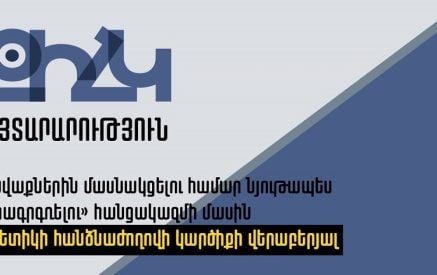The Monitoring Committee, which met in Paris on 17 May, welcomed the electoral reforms implemented by Armenia in line with the recommendations of the Venice Commission, and stated that the objective to hold genuinely democratic elections had largely been achieved.
In adopting the report by Kimmo Kiljunen (Finland, SOC) and Boriana Åberg (Sweden, EPP/CD), it also emphasised the Armenian authorities‘ continued effort to improve the system of judicial governance in line with European standards, in close co-operation with the Council of Europe, and noted with satisfaction “the real determination showed by the authorities to fight the problem of systemic corruption”.
The committee regretted the persistence of a highly polarised political climate and invited stakeholders “to enter into dialogue about how to improve the […] relationship between the parliamentary majority and the opposition”, in particular with a view to depoliticising the appointment procedures for the independent supervisory authorities.
Among the progress made since the adoption of PACE Resolution 2427 (2022) on the functioning of democratic institutions in Armenia, the committee highlighted the decision to present a new draft law on freedom of information and public information, the abolition of the criminalisation of defamation, the ratification of Protocol n° 13 to the European Convention on Human Rights concerning the abolition of the death penalty in all circumstances, and the continuation of negotiations of a peace treaty with Azerbaijan.
Read also
In view of these advances, particularly in the field of electoral law, the committee proposed pursuing its monitoring procedure and attaching particular importance to the implementation of reforms regarding the justice system, the field of media and freedom of expression.

























































